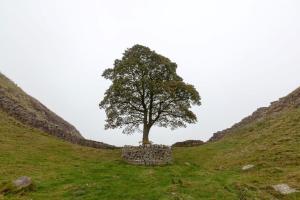Some Environmental Ideas
Things to do...
.jpg)
Consider looking into National Environmental Days as a focus for club or community initiatives. If not for the actual day, then make it an activity for the month. Each ‘Day’ event has loads of ‘’easy to access” web resources. A few examples are:
January: Veganuary
March: The Great British Spring Clean
April: Earth Day
May: World Bee Day; Compost Awareness Week; No Mow May
June: World Environment Day; End
Plastic Soup; Wildlife Trust Challenge
-
30 Days to take a Walk on the Wild
Side; National Refill Day
July: Plastic-Free July; Love
parks Week; Keep Britain Tidy
August: Great British Beach Clean
September: World Rivers Day;
Seed Gathering Season; Recycle Week
October: ‘Unblocktober’–making simple changes in daily habits;
Walk to School
Day
November: No Disposable Cup Day; Clean Air Day
December: World Soil Day; Wildlife Conservation Day
The Woodland Trust offers free tree packs to community groups and schools for planting
events https://www.woodlandtrust.org.uk/plant-trees/schools-and-communities/
Operation Pollination – a Rotary Collaboration Project recognising the importance of
pollinators, it involves restoring and maintaining their habitats on public and
private land.
Memorise or write down the eight ‘R’s before
you throw away and replace with new:
Re-fuse, Refill,
Reduce, Repair, Re-use, Re-home, Recycle, or Rot
Buy things you can re-use, or which will bio-degrade in compost. Avoid single-use plastic. In fact the target is to reach ‘zero waste’ and throw nothing away at all. Keep all thin-film wrapping like ‘clingfilm’ out of your rubbish and only dispose of it at a dedicated Co-Op collection point.
It is useful to assess what recycling opportunities there already are in your local community (eg halls and churches, shops and supermarkets), and raise everyone's awareness that this public-minded action constitues the 10th most useful thing which individuals and communities can get on with themselves in reversing climate change (see main Environment page).
A company called TerraCycle takes ‘hard to recycle’ things in cardboard collection boxes, ie stuff that usually goes in the general rubbish and is destined for landfill sites. It collects crisp packets in schools and even collects empty medical blister packs in pharmacies. (There are 4 drop-off points for these in our district: at Superdrug pharmacies in Newcastle, Sunderland, Chester Le Street and Ashington. Profits from Superdrug’s recycling go to the Marie Curie charity. More info at The Medicine Packet Recycling Programme TerraCycle. . Collection boxes for this and other causes can be purchased from Terracycle and placed in other shops or schools by Rotary. Information keeps changing online so try ringing if you have a specific type of item in mind.
A ‘Sustainability Kept Simple’ Chart – is promoted by Rotary District 1070
https://www.rotary-ribi.org/districts/page.php?PgID=256992&DistrictNo=1070
Carbon
Footprint Calculators
·
Easiest: with app and questionnaire: from WWF
https://footprint.wwf.org.uk/#/ https://footprint.wwf.org.uk/#/questionnaire
· Middling: https://www.carbonfootprint.com/calculator.aspx
· Bit more thorough and fun: https://bulb.co.uk/carbon-calculator/
· Flight calculator: https://www.esrag.org/flight-carbon-offset-calculator
Save the Planet - list of individual action reminders by Rotary Club of Manchester https://www.rotary-ribi.org/clubs/page.php?PgID=834382&ClubID=299
Webinars and Videos
BBC Four Podcasts : 39 Ways To Save The
Planet
YouTube talks: Speak Up For Our Planet
 Contact Francis Phillips about this page:
Contact Francis Phillips about this page:
Some Environmental Ideas pages:

Why we plant trees
more Some amazing new discoveries
Related pages...
Blyth Rotary lead redevelopment of old colliery site
more Isabella Heap is an old colliery site on the outskirts of Blyth which had fallen into disrepair
Cramlington Rotary help Red Squirrels
more Cramlington Rotary work with their local Red Squirrel Group to monitor the red squirrels
Alnwick Rotary puts focus on Environmental issues
more Alnwick Rotary
.jpg)